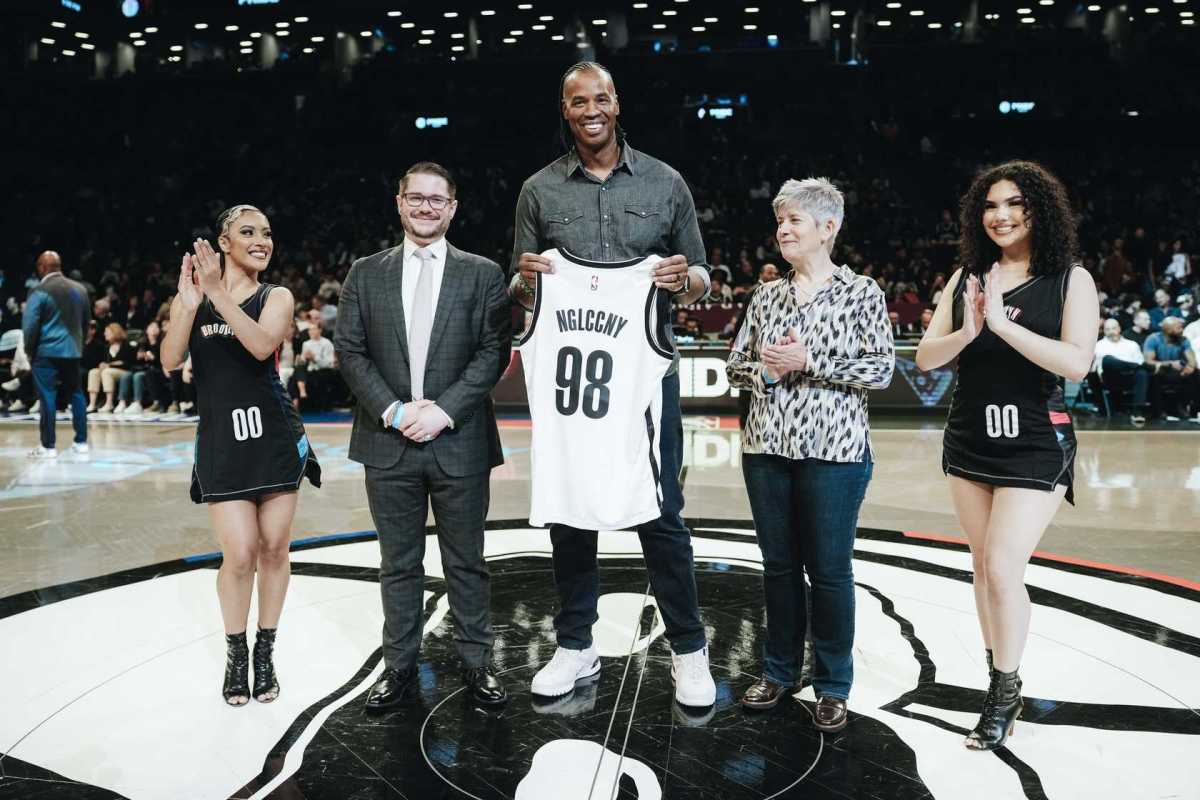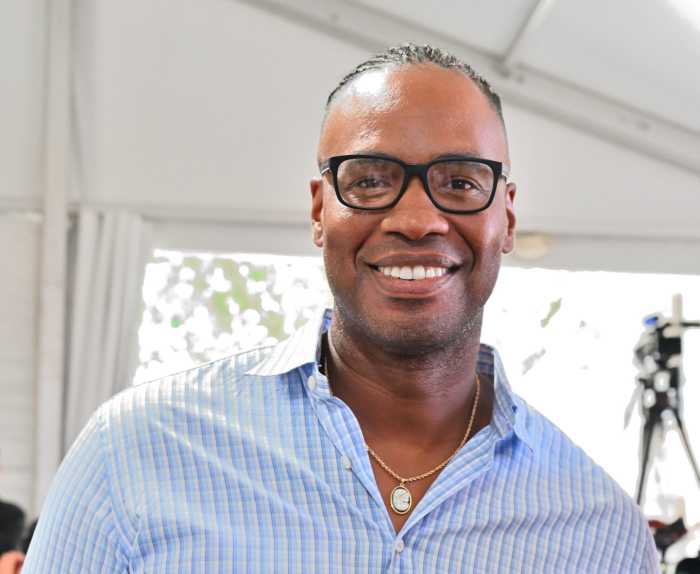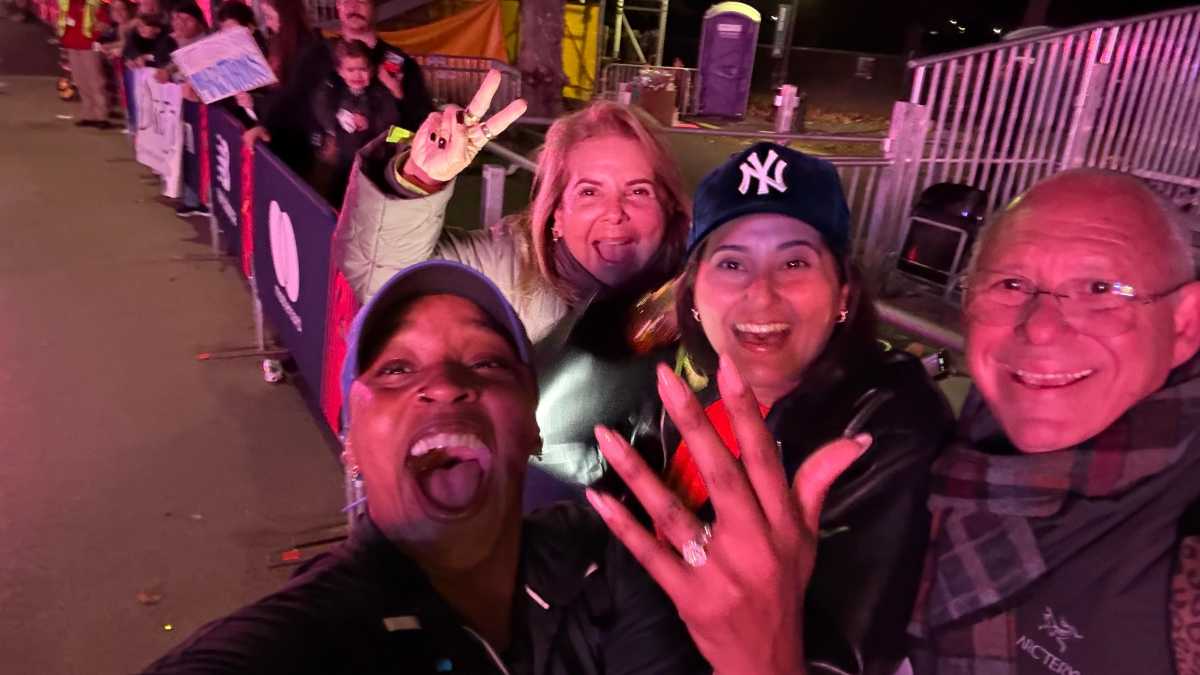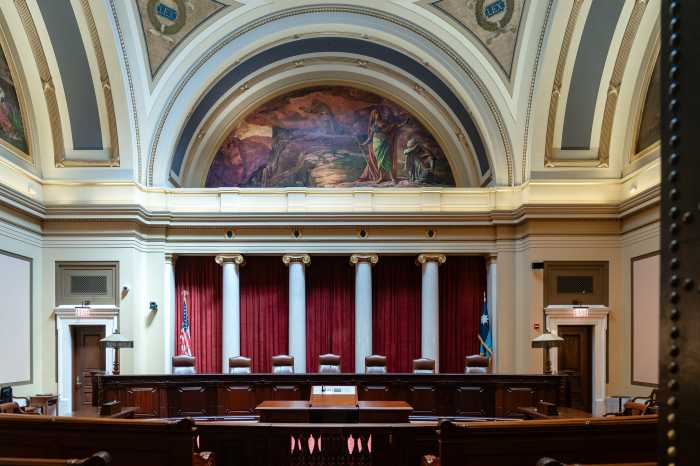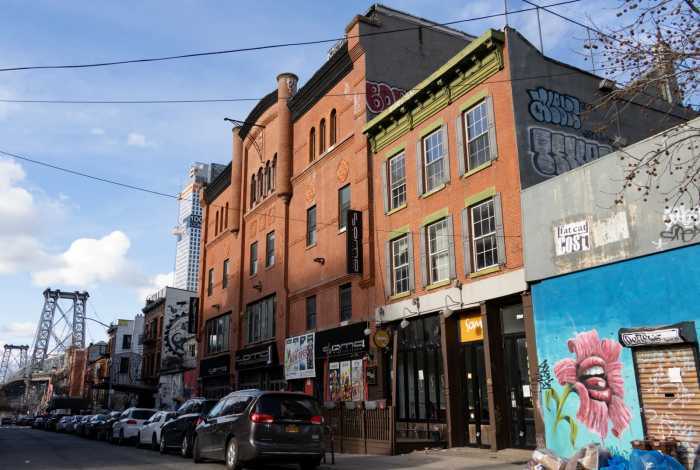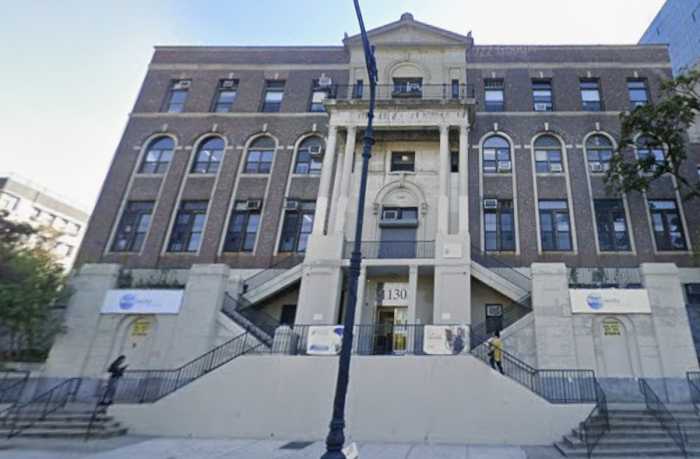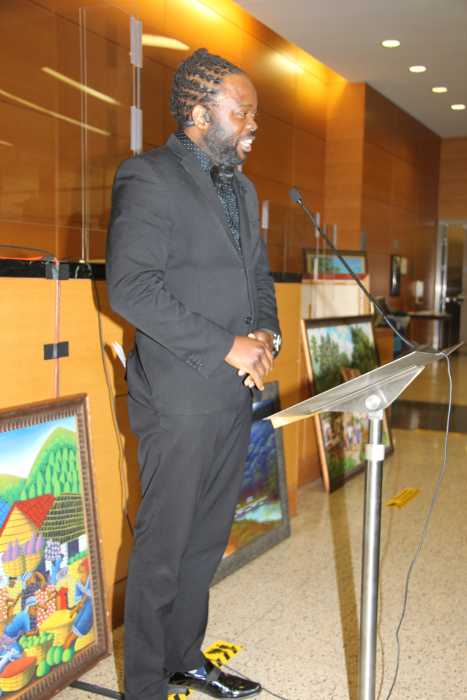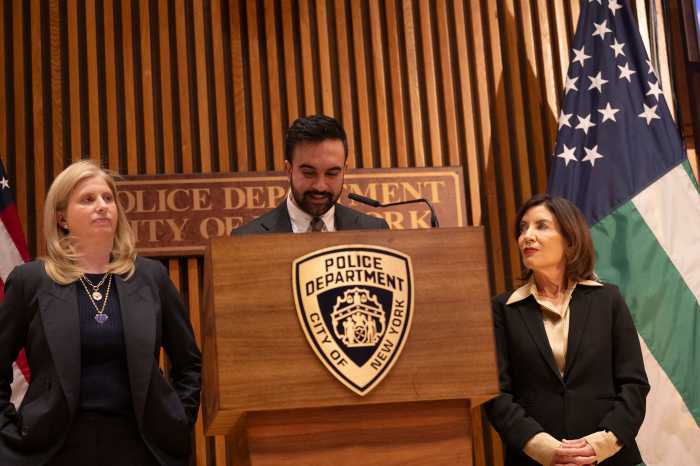The first week of April was a dizzying one for Jason Collins, and it had nothing to do with the turbulent stock market thumping in the background. The out gay former NBA player started off by returning to his old stomping grounds at the Barclays Center for Nets’ Pride Night before turning around and jetting off to San Antonio to help with an LGBTQ youth inclusion clinic at the Final Four.
The busy week was a testament to Collins’ belief that basketball can be a tool to connect people — something he said has been evident in the Nets’ organization ever since he started joining the team every year for their annual Pride Night game. Collins started his career with the Nets and retired with the team in 2014, which was the year after he made international headlines when he became the first NBA player and the first male player of any major American pro team to come out as gay.
This year’s Pride Night game, held on April 3, included a live halftime performance by the Brooklynettes that was choreographed by Arturo Lyons, along with a broader celebration of ballroom culture with performers such as Lolita Juicy Couture of the House of Juicy Couture and 4N Yardi, a Jamaican dancehall artist.
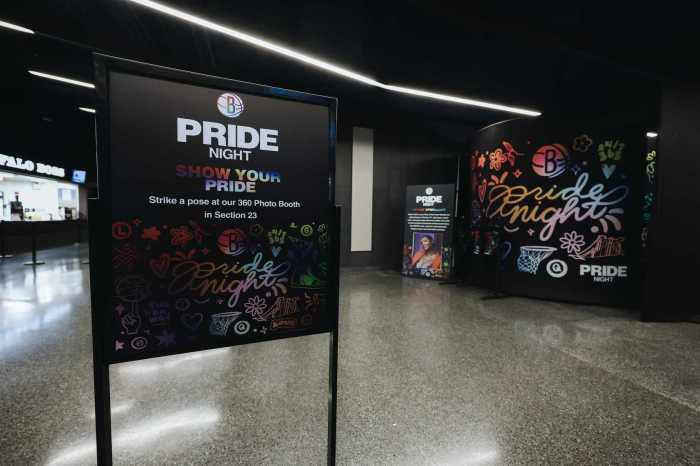
The festivities also included a Pride-themed “concourse activation” space in Section 23, which showcased artist Sophia Yeshi’s work as well as a “Pride x Brooklyn Nets” backdrop and a live DJ.
Collins presented awards on the court to Barton Lee Jackson III, the executive director of the National LGBT Chamber of Commerce New York (NGLCC), and Phyllis Mehalakes, who is NGLCC’s ambassador chair. Collins held up his former jersey, which was number 98 in a nod to the year when Matthew Shepard was murdered in a brutal anti-gay attack in Wyoming.
The festivities were a purposeful distraction to an otherwise forgettable season for the Nets, though the team’s fortunes were no better on Pride Night, falling to the Minnesota Timberwolves, 105-90. Regardless of the on-the-court performance, though, Collins had high praise for the way the organization has treated its queer fans.
“The Nets do an excellent job of letting folks know in the LGBTQ+ community that they are accepted,” Collins told Gay City News in a phone interview on April 9. “They’re welcomed and they’re celebrated.”
That kind of support is critically important at a time when trans and non-binary individuals have been singled out by President Donald Trump’s transphobic executive orders seeking to erase the trans community and deny federal funding to any educational institutions allowing trans athlete to play sports. Even during the lead-up to to the 2024 election, the Trump campaign flooded the airwaves with disturbing anti-trans sports advertisements to complement a barrage of GOP-led attacks on trans athletes, leading more than two dozen states to implement state laws barring trans students from participating in sports in accordance with their gender identity.
“It’s constant attack after attack on vulnerable groups in our society, and more directly with trans and non-binary athletes,” Collins said. Rather than fighting against inclusion, Collins said, “it should be a matter of making sure that everyone feels welcome and celebrated, and that’s our job as advocates.”
The federal government’s escalating attacks have struck at the heart of the community, with the federal government going as far as erasing the letters T and Q from LGBTQ from the Stonewall National Monument’s website and other pages associated with the National Park Service. The landscape for LGBTQ athletes has deteriorated since Collins spoke to Gay City News ahead of then-President Joe Biden’s remarks at the opening of the Stonewall National Monument Visitor Center last June.

“It’s been less than a year since we were there in New York, celebrating the opening of the Stonewall National Monument Visitor Center, and then we see the constant rollbacks — and that’s being polite — and cuts that are happening to all sectors of minority groups in our country the past few months,” Collins said. “It’s mind-boggling, but this is also a reality, so I’m reminded of when I heard Billie Jean King speaking and she said the fight for equality is constant. It’s not just one and done.”
That constant push for equality continued in the days after Nets’ Pride Night when Collins went to San Antonio to assist with the youth inclusion clinic, which was produced by the Sports Equality Foundation and the San Antonio Pride Center. Past Gay City News Impact Award winner Anthony Nicodemo, an out gay coach, wrote an Outsports article about his role in facilitating the clinic.
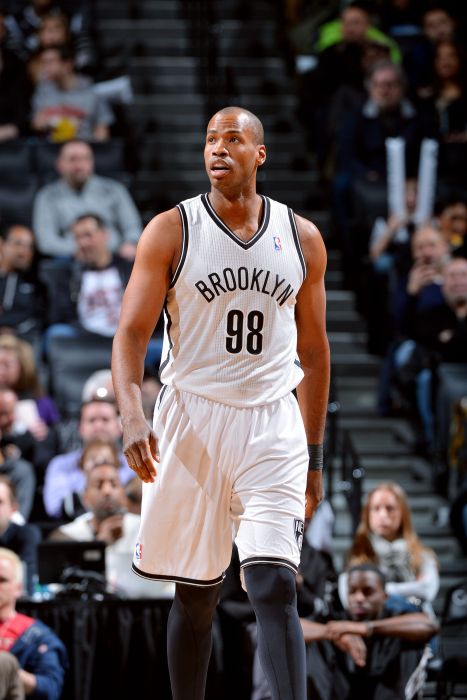
Collins used the clinic to share his own story and explain that he draws inspiration from people like his late grandmother, who grew up under segregation in the Jim Crow South, and his grandfather, who fought in the Africa campaign in World War II but felt so unsafe upon his return to Louisiana that he did not want to wear his uniform.
“If this is what my grandparents could go through, then I can go through this — we can go through this,” he said. “This is all to make sure that the next generation knows that you have to fight for equality.”
Collins was shocked when none of the kids at the clinic knew what Jim Crow laws were, prompting the former NBA player to incorporate a history lesson that also served as a reminder of the parallels between segregated bathrooms and anti-trans bathroom policies.
“I thought, ‘OK… there are so many teachable moments that can happen, and so I got into how these laws existed as far as bathrooms and drinking water, and I told them this is what my grandparents had to face,” he said.
That moment, Collins said, represented as yet another example of the importance of educating the next generation and actively continue to push for a better future.
“We need to — I guess to use a sports reference — continue to move the ball forward,” Collins said.

